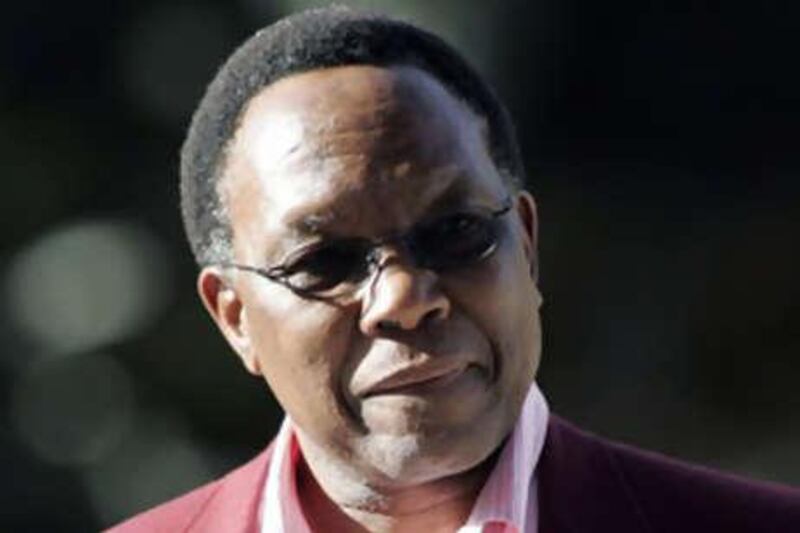CAPE TOWN // South Africa's parliament has elected Kgalema Motlanthe, deputy leader of the ruling ANC, as interim president of a country gripped by the worst political crisis since the end of apartheid. Mr Motlanthe, overwhelmingly elected in a secret ballot, replaces Thabo Mbeki, who resigned on Sunday after nine years in power. The ANC withdrew its backing for Mr Mbeki after a judge suggested he had interfered in a graft case against his arch rival, party leader Jacob Zuma, who is widely expected to become president in a general election next year. Almost one-third of South Africa's cabinet stepped down on Tuesday out of loyalty to Mr Mbeki, who presided over South Africa's longest period of economic growth. Mr Motlanthe, a quiet spoken leftist intellectual and ally of Mr Zuma, faces huge challenges including slowing economic growth and high inflation. Officials said today consumer inflation hit its highest level since before the end of apartheid in August, at 13.7 per cent. Reflecting the ANC's dominance of parliament, Mr Motlanthe won 269 votes from members of parliament, compared to 50 for the candidate of the opposition Democratic Alliance. ANC parliamentarians greeted the announcement of the vote with cheers and clapping. The upheaval in the ANC, climax of a power struggle between Mr Mbeki and Mr Zuma, has raised concerns of instability in Africa's biggest economy and a possible split in the formerly monolithic ruling party. In a sign of the wounds, parliamentary officials said Mr Mbeki would not attend Mr Motlanthe's swearing-in, despite being invited. It was not immediately clear when Mr Motlanthe would name his new cabinet although investors are keenly watching to see if the highly respected finance minister, Trevor Manuel, will be reappointed. Markets were rattled on Tuesday, with both the rand currency and stocks suffering, after Mr Manuel joined the exodus from the cabinet, but they partially recovered when he said he was ready to serve under a new president. Mr Motlanthe, a former mine union leader and anti-apartheid soldier, is widely respected by both radical leftists and business tycoons within the African National Congress. He will try to heal the worst rifts in the history of the party because of the battle between Mr Mbeki and Mr Zuma, which has overshadowed pressing issues such as widespread poverty and crime and an AIDS epidemic ravaging millions. Radical policy changes under Mr Motlanthe in the short transitional period are unlikely but foreign investors eager for stability and a continuity of economic policy will be watching closely for clues on whether the ANC will change course. The populist Mr Zuma is trying to reassure foreign investors he would not stray from business-friendly economic policies but is under pressure from left-leaning union allies to alleviate poverty through more government spending. * Reuters
South Africa elects Motlanthe as president
The ANC's deputy leader Kgalema Motlanthe becomes the third post-apartheid president after the dramatic toppling of Thabo Mbeki.

Editor's picks
More from the national




